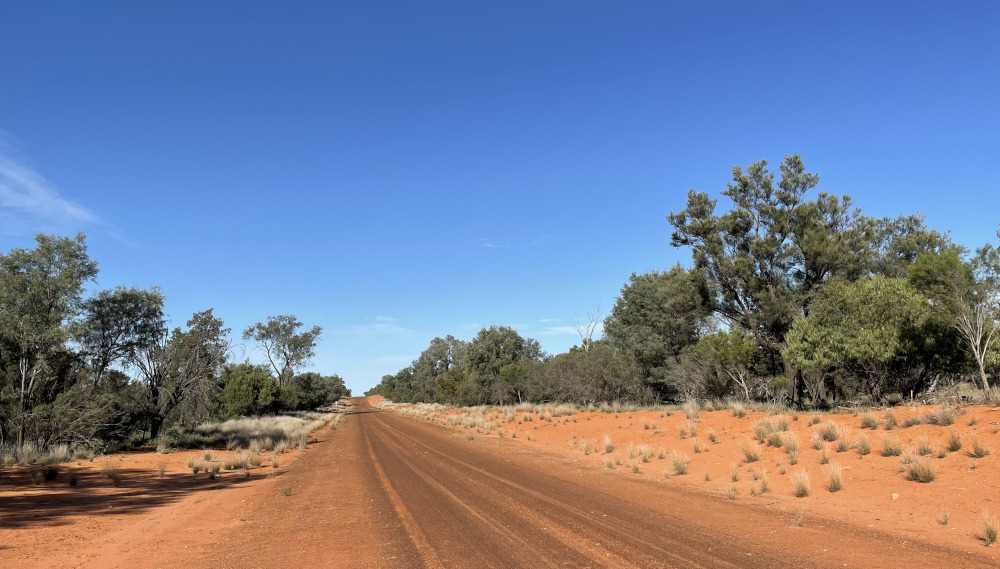
The idea is to compose a whole book by speaking it. Spoken on Barkindji and Nyemba Country by a Barkindji elder, academic and poet (Paul Collis), in dialogue with two white poet-academics (Jen Crawford, Paul Magee) and five local Barkindji, Kunya and Nyemba interlocutors (Gertie Dorigo, Bradley Hardy, Margaret Knight, Wayne Knight, Brian Smith), taped and transcribed, A Book that Opens provides a book-based archive of oral intellectual practice on Country along the Darling / Baarka River in outback New South Wales.
Many of the book’s discussions concern care for that Country. For instance, in Chapter 9 curator Bradley Hardy of the Brewarrina Aboriginal Cultural Museum takes us on a tour of the stone Fish Traps at Brewarrina, which are older than the Pyramids (Heritage NSW 2014). Palpable evidence of the industrial aquaculture practised throughout the riverine environments of pre-Conquest Australia, the Fish Traps served to maintain gatherings of up to 5,000 people in their flourishing, and they did so sustainably (Dargin 1976).
But the book is also – because of the simple insistence of our work as poets, and the nature of the topics that arise when we chat – about poetry, and in particular about the relation of speaking to the emergence of lines on the page.
The question of transcription comes into this. Though it is popularly imagined to be an automatic act, a verbatim rendering of speech in fact makes subjects appear illiterate. A downside of the transcription of Aboriginal English is its tendency to platform just this feature, as if white speakers were not similarly ‘oral’ when conversing. In fact, repetitions, false starts, a-sentential utterances and filler words characterise speech in all registers, whoever the speaker (Halliday 1985). At the same time, oral dialogue at venues like academic conferences constitutes a key driver of new ideas (Jakobson and Pomorska 1988), in ways the printed word simply cannot. Witness how important academics and professionals everywhere found it to maintain oral interactions online in the face of COVID, through Zoom and other such albeit impoverished technologies. We are actually all from oral cultures, however much our ideologies, on the one hand, and our once radical stances on the topic of ‘writing’ on the other, tend to obscure the fact. For all these reasons, Indigenous conversational practices stand side by side with various modes of academic speaking through the length of A Book that Opens, blurring the artificial boundaries we place between them, allowing a new set of differences to emerge.
The book accordingly begins – Chapter 1 – in an improvised seminar presentation, given on the 29th of August, 2022 at the University of Canberra. Over those pages we and our various interlocutors on campus consider the strategies we have thought up to bring narrative consistency to A Book that Opens, given that the conversations that course through it are, effectively, being made up on the spot. But nothing is really made up on the spot. The rivers of story and pre-given phrasing from which everyday speech emerges, in European and indigenous cultures alike, contour that presentation, as much as they contour the chapters that follow. Chapter 2, taking to the road, is set on the way from Canberra out to Bourke and captures a set of uncannily postcolonial ghost stories told by the tow truck driver who rescued and then disturbed us, when we broke down past Dubbo. Chapter 3 is the first set on Barkindji Country. It begins at a turning circle, a few metres from the entrance to Gundabooka National Park. WK Knight, a Barkindji / Kunya man and former Parks and Wildlife Cultural Officer, joins us at this point. We discuss why we are standing outside Barkindji ancestral lands, and cannot go in. Chapter 4, which follows immediately below, was composed later that afternoon, when we stopped at an Information Shelter on the red dirt road back to Bourke.













